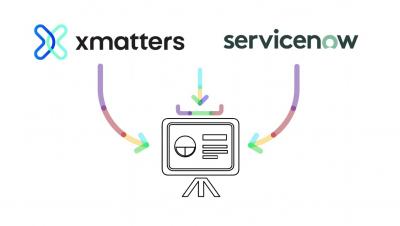Operations | Monitoring | ITSM | DevOps | Cloud
xMatters
3 examples of DevOps automation
Automating processes and the tools that enable them is vital for empowering highly productive teams. The right automation tools and workflows help DevOps and SRE teams minimize repetitive tasks, improve monitoring capabilities, enable continuous integration/continuous deployment (CI/CD), and work with massive volumes of data.
Best Practices for Managing Incidents at Varying Severity Levels
A software incident is an event or unplanned interruption that causes the software to deviate from its intended behavior, affecting the quality of service. With the ever-changing nature of the software industry, incidents are inevitable, particularly in teams that practice iterative software development cycles with constant releases to production. This necessitates a robust incident management strategy.
Create Better UX with Incident Response and Service Intelligence
Incidents that impact user experience are some of the most common challenges that IT, security, and operations teams must face. Users have high expectations for application uptime, and organizations are responsible for ensuring applications are available for them. From application performance to user interface design, many factors can affect a customer’s experience—and resulting confidence—in your product’s capabilities.
Using AIOps for Better Adaptive Incident Management
An effective incident management strategy is crucial for any business, especially those offering consumer-facing digital services. This is because when incidents occur, they may be easily detected by your users, impact your reputation, and ultimately affect your bottom line. So, to minimize the reach and severity of incidents, your response needs to be swift and effective. One way to ensure your approach meets these requirements is to implement AIOps.
TTS Dictionary - xMatters Support
APIs Impact on DevOps: Exploring APIs Continuous Evolution
An application programming interface (API) is a set of rules and protocols that enables different software applications to communicate and share data and functionality. The concept of an API has been around for a long time. However, APIs as you know them emerged in the late 1990s and early 2000s with the rise of the internet and web-based services. As more businesses began to offer online services, the need for a standardized way for these services to interact and share data became apparent.
How to Avoid Common Software Deployment Challenges
Software deployment is the manual or automated process of making software available to its intended users. It’s often the final—and most important—stage in the Software Development Lifecycle (SDLC). Software deployment is a three-stage process: All software deployments pose challenges, and issues can arise in any of the three stages.
Incident Management for Digital Service Providers
Digital service providers (DSP) are valued for their ability to provide access to digital content on demand. A high-quality customer experience and instant access to digital services are the greatest expectations of consumers and vital aspects of successful DSPs. Therefore, it's crucial that incidents, when they occur, don't impact your operations. With a robust incident management strategy, DSPs can provide their teams with tools for automating, coordinating, and quickly resolving issues without-or with minimal-service interruptions.
Best Practices for API Versioning
As your experience and knowledge of a system grow, change becomes inevitable. Your application requirements change, your bug fixes require code changes, and your APIs evolve. A key challenge in the software ecosystem is managing changes—especially when they concern APIs. Because you’re likely using APIs in multiple applications, you must document all updates and changes made to your APIs. This is where API versioning becomes crucial.







